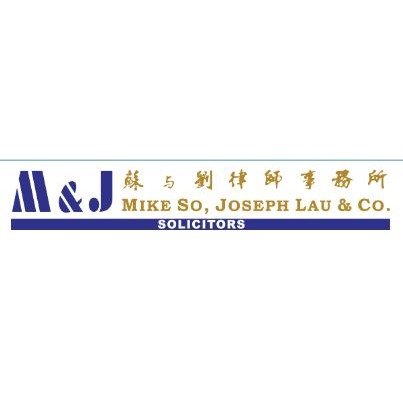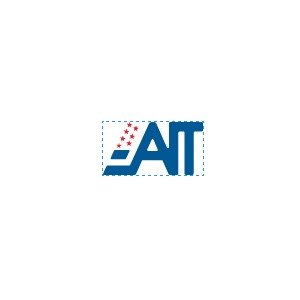Best Tax Increment Financing Lawyers in Sheung Wan
Share your needs with us, get contacted by law firms.
Free. Takes 2 min.
List of the best lawyers in Sheung Wan, Hong Kong
About Tax Increment Financing Law in Sheung Wan, Hong Kong
Tax Increment Financing (TIF) is a public financing method that municipalities in Sheung Wan, Hong Kong, may use to subsidize urban redevelopment, infrastructure, and other community-improvement projects. In contrast to direct tax increases, TIF allows local governments to earmark future tax revenues from the resulting increase in property values within a defined area-referred to as a "TIF district." Over time, this approach helps fund the initial investments made in these projects.
Why You May Need a Lawyer
Engaging in Tax Increment Financing involves understanding complex legal frameworks and financial arrangements. You may need a lawyer if you are a developer seeking to initiate a TIF, a property owner within a TIF district, or a local government official interested in the implications or structuring of a TIF agreement. Common situations requiring legal help include negotiating terms, ensuring compliance with Hong Kong laws, resolving disputes, and interpreting TIF agreements.
Local Laws Overview
In Sheung Wan, Hong Kong, Tax Increment Financing is subject to various local laws and regulations. Key aspects of these laws include the criteria for establishing a TIF district, processes for assessing incremental tax revenues, requirements for public consultation, and mechanisms for monitoring project outcomes. Additionally, certain approvals may be necessary from local councils or government agencies, which require adherence to municipal governance and financial statutes.
Frequently Asked Questions
What is a TIF district?
A TIF district is a designated area within which tax increment financing is applied to encourage development or improvement projects by using the anticipated increase in property taxes to fund initial investments.
How does TIF benefit the community?
TIF can spur economic development, improve infrastructure, increase property values, and create jobs within the community, all without immediately raising taxes.
Who manages TIF funds?
TIF funds are managed by local government bodies or appointed authorities, ensuring transparency and accountability in how funds are allocated and spent.
Can any property owner oppose the formation of a TIF district?
Yes, property owners and other stakeholders can usually participate in public consultations or hearings to express their views on a proposed TIF district.
What types of projects are typically funded by TIF?
TIF funds are often used for infrastructure improvements, housing developments, urban renewal projects, and other forms of economic development.
Is there a limit to how long a TIF district can exist?
Yes, TIF districts have a predetermined life span, often 20 to 30 years, during which the collected increment is used to repay the initial investment.
How are properties assessed in a TIF district?
Properties within a TIF district are assessed based on baseline property values at the establishment of the district, with increases in value generating tax increments.
Do TIF projects affect taxation outside the district?
No, TIF projects are intended to be self-contained financially and do not affect tax rates on properties outside the district.
How can one get involved in a TIF project?
Interested parties can participate through public meetings, engage with local government representatives, or propose development projects within the district.
What happens if a TIF project fails?
If a TIF project fails to deliver anticipated increments or financial returns, adjustments may be made to project plans, or alternative funding sources might be sought.
Additional Resources
If you require further information or assistance with Tax Increment Financing in Sheung Wan, you might consider reaching out to local government agencies, such as the Planning Department and the Development Bureau. Additionally, community organizations fostering urban development and financial consultants specializing in municipal finance can provide valuable insights and guidance.
Next Steps
If you are considering engaging in or are affected by a TIF project and need legal assistance, it is advisable to consult with a lawyer who has expertise in Hong Kong’s urban development and financial laws. Start by seeking recommendations, conducting research on legal firms with a history of handling TIF cases, and arranging an initial consultation to discuss your specific needs and objectives.
Lawzana helps you find the best lawyers and law firms in Sheung Wan through a curated and pre-screened list of qualified legal professionals. Our platform offers rankings and detailed profiles of attorneys and law firms, allowing you to compare based on practice areas, including Tax Increment Financing, experience, and client feedback.
Each profile includes a description of the firm's areas of practice, client reviews, team members and partners, year of establishment, spoken languages, office locations, contact information, social media presence, and any published articles or resources. Most firms on our platform speak English and are experienced in both local and international legal matters.
Get a quote from top-rated law firms in Sheung Wan, Hong Kong — quickly, securely, and without unnecessary hassle.
Disclaimer:
The information provided on this page is for general informational purposes only and does not constitute legal advice. While we strive to ensure the accuracy and relevance of the content, legal information may change over time, and interpretations of the law can vary. You should always consult with a qualified legal professional for advice specific to your situation.
We disclaim all liability for actions taken or not taken based on the content of this page. If you believe any information is incorrect or outdated, please contact us, and we will review and update it where appropriate.














